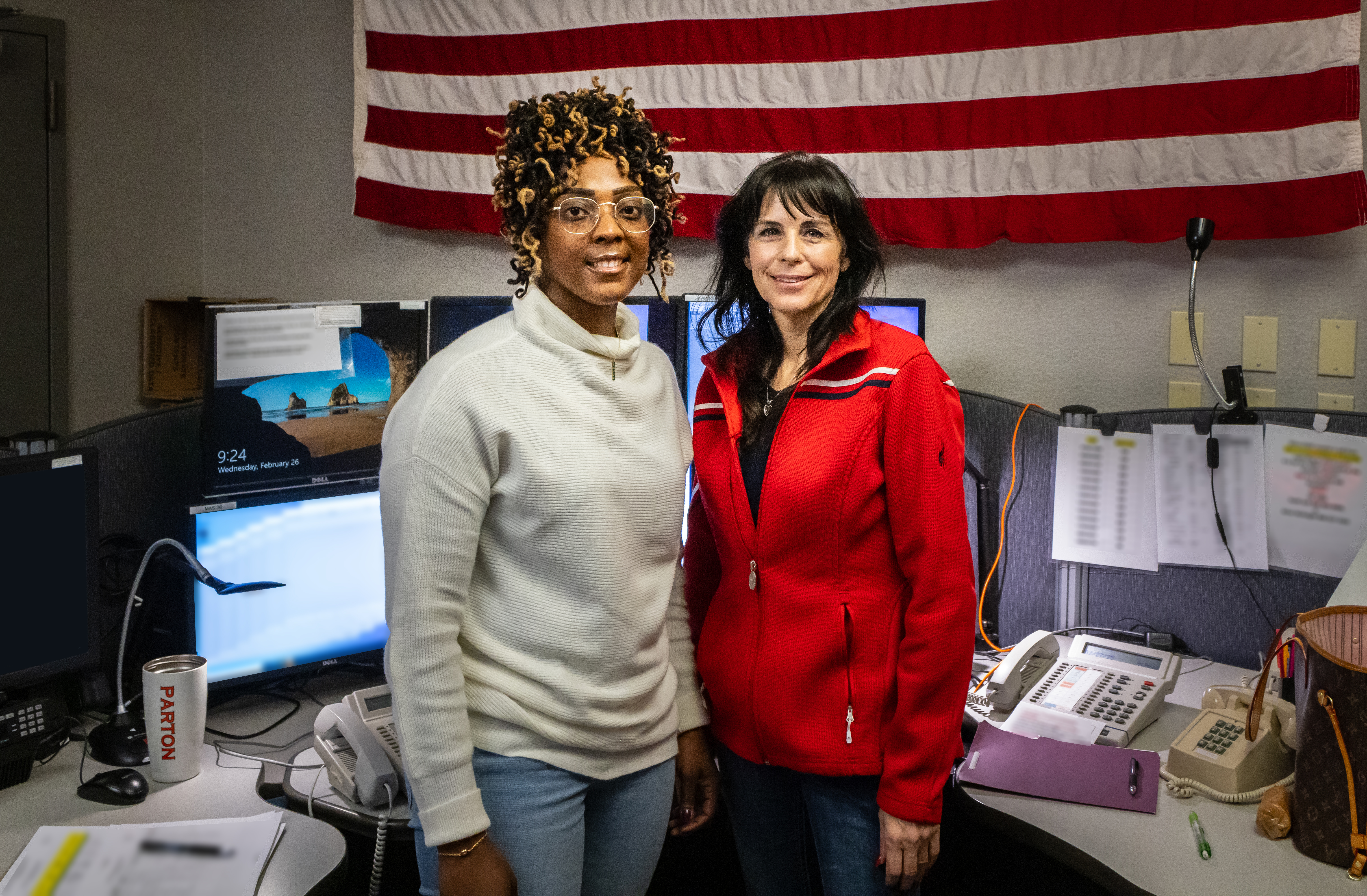Celebrating the first, first responders

Dispatchers Ayana Moore and Melodi Parton say teamwork is essential when coordinating response during an emergency.
What is an emergency? It may seem like an easy question to answer, but an emergency to one person may not be urgent for the next. Life experience, knowledge, and individual circumstances, among other things, may lead people to differ on their opinion of a true emergency.
Seeing firetrucks and wanting to know what happened — not an emergency.
Ordering a pizza and the delivery driver forgets the drink — also not an emergency.
Someone’s life or health is in danger — emergency.
Property, public health, or the environment is in danger — also an emergency.
When an emergency happens, dispatchers answer the call. The Pantex Fire Department maintains a 24/7 Emergency Services Dispatch Center. When dialing 9-1-1 from a phone at Pantex, the call is routed to their dedicated team. If calling from a cell phone, the emergency will be handled by the appropriate off-site dispatch center.
Even though dispatchers are often the initial point of contact for emergency situations, they sometimes do not receive the same recognition as other first responders. National Public Safety Telecommunicators Week aims to change that. Held annually the second week in April, NPSTW honors and recognizes 9-1-1 professionals like dispatchers Ayana Moore and Melodi Parton — both frontline responders.
“I got into this line of work because my heart’s desire is to make a difference in my service,” Moore said. “We are trained to protect and serve, so I feel my service is to protect from greater danger, to prevent a greater tragedy, and to provide the help that is needed.”
Dispatchers are trained in taking emergency medical and fire calls, monitoring alarms, mutual-aid requests, and answering non-emergency calls. Parton says it is important to stay calm while working in such a fast-paced, high-pressure environment.
“A clear mind allows for better decision making and communication which can be vital in emergencies where every second counts,” Parton said. “Panic can lead to mistakes or delays that could exacerbate the situation. My reaction has to be one of urgency coupled with composure.”
If there is an emergency, stay calm and remember to breathe. When calling 9-1-1, first give the location of the emergency. If the address is unknown, use landmarks or describe things nearby. Dispatchers are highly trained professionals ready to use the information provided to effectively respond to a variety of calls.
“I never know what type of situation I may have and who I have the pleasure of talking to,” Moore said. “If someone calls with an emergency and they’re panicking and I’m panicking, I wouldn’t be of any service to them. Staying calm is the key to dispatching.”
While one dispatcher takes calls, asking questions and gaining valuable information, their teammates are hard at work notifying responders to get them enroute quickly. Training and experience help dispatchers know what information is critical to ensure an appropriate response.
“When receiving a call, the process begins with an immediate assessment,” Parton said. “Dispatchers focus on gathering essential information from the caller and ensuring they feel heard and supported. Dispatchers then determine the best course of action. They remain calm to effectively relay information to first responders and coordinate resources efficiently.”
Dispatchers are a crucial aspect to public safety, acting as the link between callers and the responders providing emergency assistance.
“When I help get resources to someone during an emergency, I feel relieved, hopeful, stressful … many emotions but overall grateful to serve in this capacity,” Moore said.
National Public Safety Telecommunicators Week shines a light on the people behind the phones who serve our plant and our community as first responders. Whether the call involves people, property, or even pizza, dispatchers will answer ready to coordinate a response.
“Knowing that my actions can significantly impact someone’s life during a critical moment is both humbling and motivating,” Parton said.
